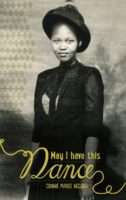So apartheid crumbled. The ANC had won the first democratic elections. It was a source of pride to see some of my fellow YWCA members included in Parliament. Andile, too, was honoured with the position of national director-general of the Department of Communications. He served the government for eight and a half years before resigning to join the private sector.
The country was free, but the struggle hadn’t ended for the poor people I saw every day at the clinic and in the townships. My work was not yet done.
One day back in 1988, before I knew that Andile was alive or could guess that liberty was less than a decade away, I noticed children – some in dirty clothes, some neat and clean, as though they had just come from school – lining up side by side with work-seekers at the soup kitchen, waiting for a meal. The kitchen’s organisers told me they came back in the evenings, begging for more food and a place to stay.
I spoke to the children to find out why they didn’t live at home. Most of them openly shared their stories with me. Some of them were on the streets to avoid being punished for sniffing household solvents. Others were fleeing sexual and physical abuse. Their stories were frightening.
The soup kitchen was organised by an Anglican priest, Father Ed Gates, and a Mr Edward Batty. The priest was kind enough to offer the YWCA a place in the church’s basement where the children could sleep overnight. We started collecting blankets and mattresses. We set up a suitable place for us to cook and for the children to wash themselves.
This was the beginning of the Daily Bread Charitable Trust. The Trust was registered in 1989, the same year I was forced to retire. Even as I was closing the door on my nursing career, the path towards a new career in childcare was unfolding before me.
We obtained the services of social workers to help us investigate the children’s home situation and arrange safe homes for them. Time and again, we found that alcoholism and domestic violence had broken families to the point that their children felt they had no choice but to flee.
We also asked the Department of Education to provide us with school teachers, which they did. These teachers helped us develop a programme to help the children catch up on their education and, for those that were ready, stream back into the public school system. It was always a great source of pride for everyone involved when a child made the transition from our education programme to public school.
The first group to stay at the overnight shelter were all boys, aged between eight and fourteen. There were nine of them, their skins dirty and their clothes ragged with neglect. Among them were two boys, brothers, whose mother and father were both in jail. They had been living with relatives who spoke so poorly about their father that the boys could stand it no longer and fled.
My heart went out to these two siblings in particular. I’m not sure why. Perhaps it’s because I remembered how much I worried about my children when I was detained. Perhaps it’s because their loyalty to their father indicated a sense of self-worth that many of the other street children had lost.
It wasn’t long before we could move the boys out of the church basement and into a house we had acquired in town. This simple step brought about a great change in the boys, especially the brothers. Their dignity had been restored, and with it their manners and happiness.
The intention was never to take these children from their parents; it was to give children an alternative to parental care that had either failed or was not available. In fact, the children’s parents were encouraged to visit and see how their children were progressing.
By 1992, the number of boys had increased to the point that we needed a bigger place. With the help of an overseas donor, we bought a farm on Deerfield Road, on the way to King William’s Town, not far from the East London airport.
Deerfield Road farm had a lot of old buildings that we cleaned up, painted and, where necessary, renovated to turn it into a home. The boys slept in dormitories and there were rooms for house parents. There was even a big kitchen and dining area. We used the smaller rooms as classrooms while a proper school was being built.
Meanwhile, more and more children were being accepted each month, girls as well as boys. We bought a second, smaller farm to accommodate the girls. Within a couple of years, we were taking care of more than 300 boys and sixty girls.


